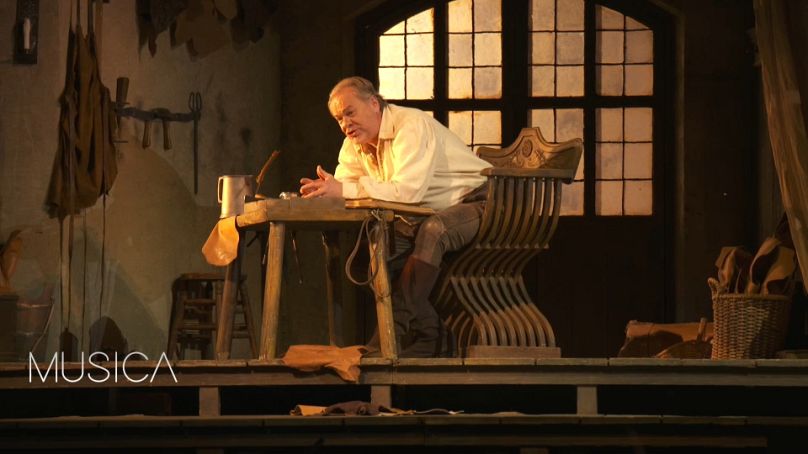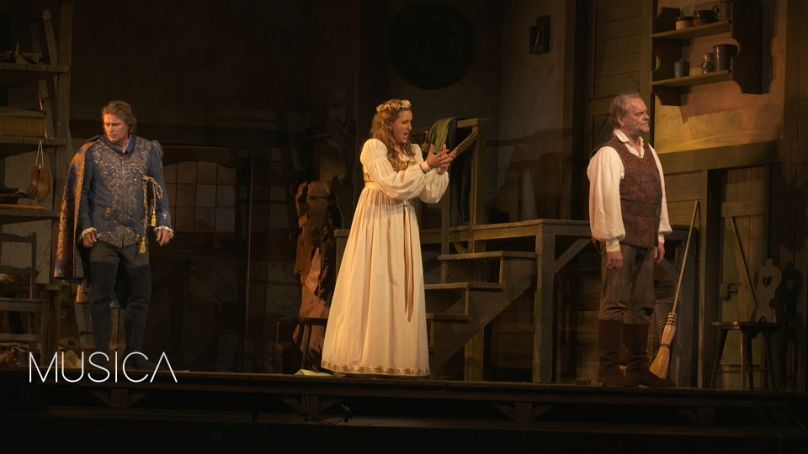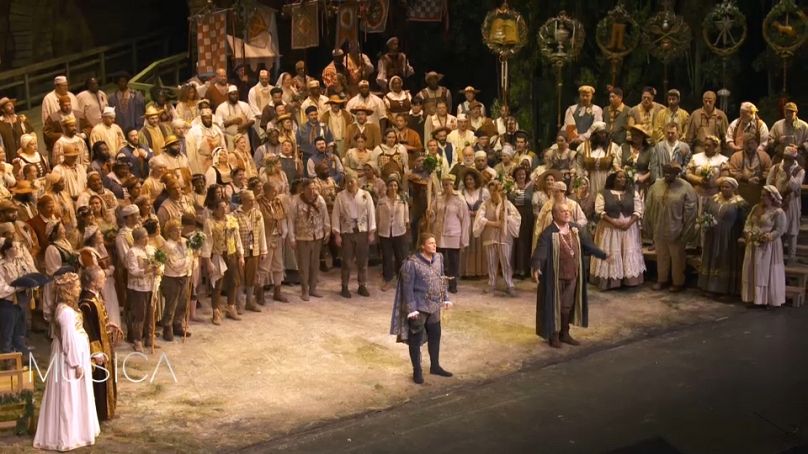The Metropolitan Opera in New York stages the longest opera in the repertoire and also marks the triumphant return of Maestro Antonio Pappano to its podium for the first time in nearly 25 years.
The Metropolitan Opera in New York is back to life and once again casting its magical spell.
This autumn the six-hour-long comedy by Wagner, 'Die Meistersinger von Nürnberg' was on its stage for the first time in seven years, a tremendous feat during a post-pandemic era.
However, the choice and success of this piece, which debuted on October the 26th, was not the only surprise the Met had to offer. The performance of Wagner's light-hearted opera marked the return of Sir Antonio Pappano to their stage for the first time in 25 years.
An opera fit for Pappano
Many opera houses may have shied away from such a long performance in the midst of a health crisis where people are less likely to sit for over five hours wearing masks and in an enclosed space. But Pappano's return to the Met's stage required a piece worthy of his masterly conducting skills.
Pappano is the current music director of London’s Royal Opera. He is generally described as being a master storyteller, using style, musicianship, and a great understanding of drama to create his unforgettable performances.
Lise Davidsen, the Norwegian soprano and Operalia laureate, who embodied the role of Eva for the first time, explained that "to do a role for the first time with Maestro Pappano is a gift". According to her, this is because of the support he offers, "he's there all the time and he's not just a wonderful conductor, he's a wonderful coach."
Beyond her happiness to be working with Pappano, Davidsen also feels that performing at The Metropolitan Opera "is as special as you might believe it to be."
An epic comedy
'Die Meistersinger von Nürnberg' is Wagner's longest opera. As Pappano says, "it's a comedy. It's almost a six-hour evening but it's crisp and it's life-enhancing."
The story revolves around the guild of master singers in medieval Germany, an association of amateur poets and musicians, and a song competition they will compete in. The prize is the hand of Eva, the daughter of a wealthy goldsmith. The plot depicts a journey through love conquest, art, and creativity.
The main character, Hans Sachs, a wise cobbler-poet and mastersinger is brought affectionately to life by Wagner. He is also said to be based on a real person by the same name. His role was taken on by German baritone, Michael Volle, who said that he is always overwhelmed by the role and "the huge dimension of it." "He's such a multi-faceted character. He is a philosopher, he is a lover, he is a very jealous person", Volle adds.
To Pappano, 'Die Meistersinger von Nürnberg' communicates "artistic freedom and listening to what other people have to say". He believes that its overall message is that "Traditions are a good thing, but stay open-minded. We're here on this planet to learn, to listen, to see, to experience."
The finale
After almost six hours of performance, it is perhaps easy to believe that the musicians, singers, actors, and conductor feel some relief in the closing minutes. In some respects, this is how Volle feels because when he has sung his last notes and the choir comes in, he describes himself as being "completely exhausted", but happy about his stamina.
Pappano on the other hand feels a "sense of elation and happiness" that they have all made it to the end. He finds the finale wonderful and fitting as "it ends how it begins, in a blaze of C major."














